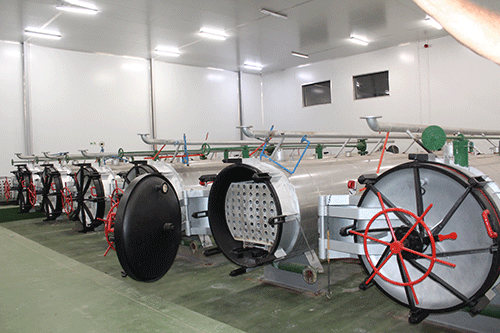WALVIS BAY – The parliamentary standing committee on natural resources which recently consulted stakeholders, on the seal threat to the fishing industry, is puzzled by the underutilised state-of-the-art horse mackerel facility at Walvis Bay.
The African Selection Group invested over N$310 million to set up the flagship Princess Brand Processing at Walvis Bay. The processing plant consists of a freezing unit, a cannery as well as a modern fish meal plant.
According to the general manager of the facility, Adolf Burger they can, at full capacity, employ about 1 200 people, but cannot do so due to a lack of quotas.
The company has been buying horse mackerel from right holders; however poor catches often hamper their operations.
Burger said that at the moment, they are catching an experimental quota.
“However, we have not been fully operational for the past four years and only employ about 600 people. We are exploring other possibilities but it would be costly as the current factory is modified for horse mackerel. All our equipment is for horse mackerel value addition, meaning if we want to change, we have to redo all these and that’s a costly exercise,” he explained.
The Princess Brand Processing was previously known as Seaflower Pelagic that was established through a joint venture between Fishcor and African Selection Fishing Namibia in 2017.
This agreement allowed them access to at least 50 000 metric tons of horse mackerel until 2031, through Fishcor. However, the company is unable to exploit its quota due to an ongoing dispute with the government over the Fishcor partnership. This resulted in the previous employees losing their jobs.
Parliamentarian Tjekero Tweya said he was deeply disturbed that the facility has not been utilised to its full potential.
“This is millions of dollars just sitting, yet we could have used this factory in so many ways. Here we are talking about the possibilities for seal meat. We have recently learnt that aquaculture is facing a huge challenge concerning fish feed as we are currently importing from Zambia. These are all opportunities that can be explored,” Tweya said.
According to him, there is a growing concern that Namibia’s aquaculture cannot produce due to a shortage of fish food.
Tweya added that there is definitely a need for both financial institutions and the private sector to come on board and venture into business activities that will not only generate money but would translate to both food and job security.
“We should not only educate uneducated politicians but should talk to each other in terms of growing our economy. Let us harness our natural resources as there are so many opportunities that can contribute to our prosperity. This factory cannot simply stand idle while there is so many business opportunities for it,” he appealed.
– edeklerk@nepc.com.na



